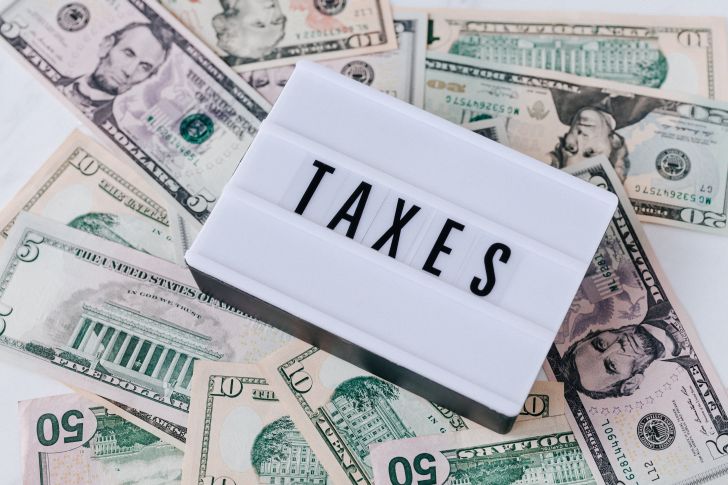Many of us want to get a degree, to launch a new business, and those things we can achieve easier today than before. One of the reasons because the government supports us through grants. But, the question is, “Do you have to pay taxes on a government grant?”
If you are eligible to receive grants, this can be a fuel to achieve your dreams. However, it is important to note that the grant money could be taxable, based on the aim of the grant and the terms of the contract. Therefore, you should know more about government grants before receiving them.
3 Different Kinds of Government Grants
You will get personal grants as financial awards if you can pursue personal achievements, such as artistic or educational endeavors. You will get some amount of money without having an obligation to pay it back. In this case, you must use that money for specific goals.
Similar to personal grants, there are business grants available in the form of free money. This award is only for specific purposes, with the concern on business. Commonly, companies must compete with others to win grants by starting projects that can support the community. Or, the companies that get this award must perform critical research in certain fields, such as the medical or technological industry.
Besides, some grants are available for businesses that cannot acquire uncontrollable reasons. For example, when those businesses grow in an area where there is no support for conventional business loans.
Usually, the government side as the grantmaker will create the eligibility criteria. To get the grant, then you must meet that requirement. For example, you must submit a detailed application first, and write a proposal on how to use money.
Personal Grants
The government may offer personal grants that can reach over $100,000. There are six types that you can apply, which are:
- Education grants. The grants help individuals cover education expenses, such as tuition, books, or accommodations. For instance, the government has Pell Grants to support undergraduate students by providing financial help. From Pell Grants, the government provides $7,395 for undergraduate students who is the 2023-2024 school year.
- Housing grants. The goal of the grant is to support individuals in getting safe housing. For instance, there are numerous organizations and agencies across the country that offer down payment assistance for future homebuyers with little financial resources.
- Healthcare grants. This grant aims to offer financial help for medical expenses, such as medications, treatments, and healthcare services. For example, fertility treatments are expensive. Therefore, many foundations assist it.
- Veteran grants. Veterans usually face some challenges once they come back home. It can be their physical, financial, or psychological matter. For example, grants like VFW’s Unmet Needs Program have $2,500 for each veteran. They can use this money for medical care, pay debt, or others.
- Professional Grants. Typically, some private organizations provide funds per year. The goal is to help work in a specific industry. For example, National Geographic offers more than $100,000 for individuals finding new ground in conservation, science, or technology.
- Arts and Cultural Grants. The grants help individuals in cultural or artistic fields such as writers, musicians, performers, or artists. The grants help them cover some costs like studio space, materials, or exhibition expenses. Ford Foundation is an example that provides this type of grant focusing on documentaries.
Business Grants
Business grants support the growth of the economy industry. It helps individuals focus on entrepreneurship as well. Usually, the grants are for those who deal with challenged populations and communities. Here are four popular kinds of business grants:
Government business grants
The grants are financial awards given by different levels of government. It can be local, state, or federal government levels. The goal of the grant is to support businesses in reaching specific goals to grow economic development.
The business grants offer various goals. It can be to stimulate economic growth, create jobs, foster innovation, or solve specific needs in certain communities. Besides, the eligibility criteria for government business grants are various, depending on the specific goals and programs. Also, federal grants have higher competition than others. It is because the grants are accessible to the whole country. Meanwhile, state and local grants are easier to get since the scope of the grant is limited.
There are various grant programs you can find from the U.S. Small Business Administration (SBA). For example, the Business Innovation Research (SBIR) program supports research and development for small companies in the field of technology.
Minority Grants
Minority grants are financial awards that support businesses from individuals who are part of racial or ethnic minority groups. For example, African Americans, Native Americans, Hispanic Americans, and others. The grant’s goal is related to historical disparities and supports economic enhancement inside the minority communities. From the federal level, there is Minority Business Development Agency creates this type of grant together with other grants available based on region.
Women’s Grants
This financial award is very exclusive. The grants are only for any businesses operated or owned by women. The goal is to support gender equality in the field of entrepreneurship. Also, the grants are available to empower women in the business field, and to provide them with financial resources.
For instance, the Dorothy B. Brothers Scholarship provided by the Women’s Business Enterprise National Council (WBENC) offers $11,000 in grants for each eligible woman. They can use this grant as their tuition to get an executive education.
Veteran Grants
For any U.S. military members who have finished their service, and then run a business, they can get this type of grant. The goal of this grant is to help the transition period experienced by veterans so they have a good civilian life. The grant provides resources and financial support to start or grow a business.
It is important to know that there are no ongoing grants to apply annually. However, financial support is available from the U.S. Department of Veterans Affairs or VA. Besides, veterans can also get grants from the state.
Do You Have To Pay Taxes On A Government Grant?
Now, we move to the main topic, which is do you have to pay taxes on a government grant or not. The answer is it depends. If you get a personal grant, commonly it is not taxable if you stick to the terms and conditions for getting and using the money.
For example, you get a grant for your education, which is tax-free if you use it for the intended expenses. You can use it to pay your tuition, buy learning equipment, and buy books. However, if you use the money for paying board or room, then the grant will be counted as taxable income.
On the contrary, business grants are commonly taxable. This regulation does not go for a 501(c)(3) nonprofit. The taxation of business grants depends on the specific grant, such as the way the recipient uses the fund. Therefore, it is important to review the information on the grants you are seeking first. If you want to get more insight, it is also important to work with a tax professional.
Ways to Determine if You Have To Pay Taxes on A Government Grant
So, the answer to your question, do you have to pay taxes on a government grant is clear. Not all types of grants are taxable. The tax treatment depends on the goal of the grants, the way you use it, and the regulations of the grant program. If you have no idea about ways to determine if you have to pay taxes on a government grant, here are things to do:
Review Grant Agreement
The grantmaker provides you with some documents about grant agreements. In this step, you must read and review it carefully. This document will outline the specific terms and conditions of the grant, such as tax implications.
Ask Grantmaker
If there is no detailed information about the tax status of the grant program on the grant agreement, you can talk to the grantmaker or the organization offering the program. They can help you find more information about whether it is taxable or non-taxable income.
Find IRS Website
You can visit the official Internal Revenue Service website. IRS provides information about grants as well as taxable income. IRS also offers various publications and resources so you will have a better understanding of the tax implications of the grant program.
Do Some Research
It is important to know that federal and state tax laws can determine the taxability of grant money you get. Therefore, it is important to research the tax laws on the official website of the Department of Revenue based on your state. From here, you will get more information to help you consider everything.
Meet Tax Professional
If you still have no idea about the tax implications of the grant program, it is better to find a qualified tax professional to talk to. Or, you can meet a professional accountant. They are expert in tax matters, and they can provide some valuable advice for your situation.
Financial Preparations on Taxable Grants
In most cases, business grants you get will be taxable. That is why once you apply for the grant, keep this in mind before spending the money. There are some principles you must have to make you easily administer the grant fund:
In most cases, any business grant you get will be taxable. It is important to know this before applying for the grant. There are some principles you should know to administer this grant:
- Be sure that you know how much of the grant you want to pay in tax. After that, set that amount of money aside. This way can help you to avoid finding funds from other sources once you have filed the taxes.
- Include grants in your accounts. Any grants you get should appear on your tax return. If you exclude these grants, then it is possible for you must pay your penalties.
- Make sure that you have good financial records. Be sure that your business records are correct, and up to date, and include any grants you have gotten, taxable or not.
- Research your tax deductions. It is possible to take advantage of tax deductions. It helps you to decrease the amount of the tax that you must pay for your business. Even it can help you to free up more money you have gotten from your business grant.
How to Find and Apply for Business Grants
Many organizations provide business grants. Well, it is not easy to find a grant that can meet your business needs. Here are the following things to check:
- Government grants are provided by the federal and state governments. You can visit Grants.gov a website that provides a comprehensive list of business grants. Alternatively, visit the U.S. Small Business Administration (SBA) website and State Business Incentives Database as some good resources.
- Many corporations provide grants to businesses running in certain fields. Finding those grants can be done by searching online.
- Charities and foundations also offer grants to businesses operated by the representative communities.
Once you have found the right grant, then you can immediately apply online. You will likely need some documents to support the application, such as a business plan. It helps the grantmaker know the business that you want to develop using the grant.
Once submitted, do not wait. It takes months for a donor corporation to take their decision on your grant application. Therefore, it is better to call them for any update.
Summary
Do you have to pay taxes on a government grant? This question is very crucial for all businesses and individuals before receiving grant money. Personal grants are non-taxable when you use them as a purpose. But, business grants usually come with tax unless the recipient of the grant is a non-profit organization. However, the tax implications on grants depend on the usage, the purpose, and the specific regulations of grants.
If you do not receive a government grant, never consider applying for loans or engaging in other usurious practices if you are a Muslim. Such actions are prohibited in the religion.
FAQ
Here are some related questions to “Do you have to pay taxes on a government grant?”:
Do you have to pay taxes on a government grant for your business?
Commonly, yes. The IRS explains that most kinds of business grants are taxable with a few exceptions.
How are money grants taxed?
The way money grants are taxed is the same as the non-cash grants. So, make sure that you have the cash records accurately. Otherwise, you may get tax penalties.
Do you need to report a business grant to the IRS?
If you get any business grant, you must report it to the IRS, because it is your tax return. Otherwise, you will get serious consequences due to tax fraud.
References:




